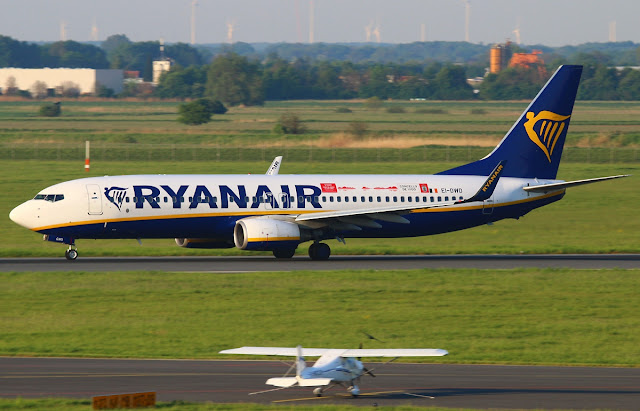US Congress Might Consider on More Legroom on Commercial Flight
US Congress Might Consider on More Legroom on Commercial Flight. Congress is considering ordering the FAA to establish the minimum size of airline seats, investigate the size and number of aircraft sinks and set new standards to allow service animals to fly with their human owners.
The proposals are included in an FAA commitment plan funded by lawmakers from the House and the Senate on Saturday. Congress faces a deadline of September 30 to keep the FAA programs running, and the Senate must approve the initiative this week or both houses must approve a short-term extension.
The room between the rows, measured from a point in a seat to the same spot in the seat of the next row, has been shrinking for many years as airlines add more seats to their aircraft. Once it was commonly 34 or 35 inches, and now it is less than 30 inches in some planes. FAA officials say that existing safety rules mean that seats are unlikely to be smaller than 27 inches.
The bill also blocks the involuntary crash of passengers they have already addressed, but lacks a passenger-backed effort to prevent airlines from imposing rates considered "unreasonable and proportional." However, it includes requirements that airlines more explicitly declare their policies for delayed flight management, and to accommodate passengers with disabilities.
"This measure will provide long-term certainty for the millions of passengers and countless companies that rely on access to safe and affordable travel and shipping options every day," Nicholas E. Calio, president and CEO of Airlines for America, which represents to the airlines, he said in a statement.
It also allows Amtrak to start using a computerized passenger inspection system similar to those used by airlines, increases punishments for passengers that interfere with flight crews, creates a system by which drone companies can deliver packages and It establishes punishments for anyone who interferes with forest fires fighting to blow up a drone nearby.
The bill would also require flight attendants to obtain a minimum of 10 hours of rest between work shifts and address concerns about the increased noise level of the airport caused by the new flight routes.
Calio said the commercial aviation industry supports 10 million jobs and contributes $ 1.5 trillion to our economy annually. On a daily basis, 3.2 million people travel on US airlines, which serve 800 airports in 80 countries, he said.
Sen. John Thune, R-S.D., chairman of the Senate Committee on Commerce, Science and Transportation, said he hopes the House and Senate will act quickly to send the bill to the president's desk.
The proposals are included in an FAA commitment plan funded by lawmakers from the House and the Senate on Saturday. Congress faces a deadline of September 30 to keep the FAA programs running, and the Senate must approve the initiative this week or both houses must approve a short-term extension.
US Congress Might Consider on More Legroom on Commercial Flight, pic: Boeing 737 MAX Legroom
Democratic Senator Bill Nelson of Florida said lawmakers in both chambers agreed it was time to take action on "smaller and smaller seats." "Help could soon be on the way for the tired airline passengers who are facing smaller and smaller seats," Nelson said.The room between the rows, measured from a point in a seat to the same spot in the seat of the next row, has been shrinking for many years as airlines add more seats to their aircraft. Once it was commonly 34 or 35 inches, and now it is less than 30 inches in some planes. FAA officials say that existing safety rules mean that seats are unlikely to be smaller than 27 inches.
The bill also blocks the involuntary crash of passengers they have already addressed, but lacks a passenger-backed effort to prevent airlines from imposing rates considered "unreasonable and proportional." However, it includes requirements that airlines more explicitly declare their policies for delayed flight management, and to accommodate passengers with disabilities.
"This measure will provide long-term certainty for the millions of passengers and countless companies that rely on access to safe and affordable travel and shipping options every day," Nicholas E. Calio, president and CEO of Airlines for America, which represents to the airlines, he said in a statement.
It also allows Amtrak to start using a computerized passenger inspection system similar to those used by airlines, increases punishments for passengers that interfere with flight crews, creates a system by which drone companies can deliver packages and It establishes punishments for anyone who interferes with forest fires fighting to blow up a drone nearby.
The bill would also require flight attendants to obtain a minimum of 10 hours of rest between work shifts and address concerns about the increased noise level of the airport caused by the new flight routes.
Calio said the commercial aviation industry supports 10 million jobs and contributes $ 1.5 trillion to our economy annually. On a daily basis, 3.2 million people travel on US airlines, which serve 800 airports in 80 countries, he said.
Sen. John Thune, R-S.D., chairman of the Senate Committee on Commerce, Science and Transportation, said he hopes the House and Senate will act quickly to send the bill to the president's desk.















Post a Comment